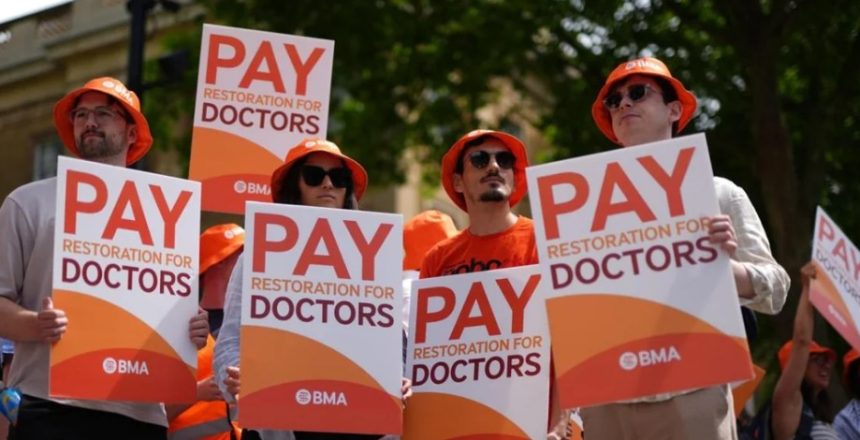Resident Doctors Strikes: Five-Day NHS Walkout Begins Across England
Thousands of resident doctors across England have launched a five-day strike, the latest in a long-running dispute with the government over pay.
From 7am this morning, as many as 50,000 junior doctors downed tools, bringing significant disruption to NHS services in hospitals and clinics nationwide. The strike is scheduled to run until 7am on Wednesday, 30 July.
This marks one of the longest consecutive walkouts in NHS history. The British Medical Association (BMA) remains firm in its stance that pay has fallen dramatically in real terms since 2008-09, far more than for most other sectors.
“The BMA says resident doctors have seen their pay fall by a much greater amount in real terms since 2008-09 than the rest of the population.”
Despite the strike, NHS England has reassured the public that urgent and emergency services remain available. GP surgeries are also operating as normal, and the 111 service continues to offer assistance.
The industrial action has sparked a wave of political reactions.
Labour leader Keir Starmer made a last-minute intervention, urging doctors to reconsider. “The strikes would ‘cause real damage’.”
Health Secretary Wes Streeting, writing in The Guardian, expressed frustration over the timing of the strikes. He argued that the fresh wave of walkouts came just after doctors received a 22% pay rise for 2023-24 and 2024-25.
“The industrial action ‘enormously undermines the entire trade union movement’.”
“The decision by the BMA to push for new strikes immediately after receiving a pay rise of 22% to cover 2023-24 and 2024-25 was unreasonable and unprecedented.”
This strike comes at a time when the NHS is already under immense strain, grappling with staff shortages, soaring demand, and post-pandemic backlogs. Patients are being urged not to delay seeking care, but to be mindful that non-urgent appointments and procedures may be postponed.
This is yet another flashpoint in the wider conversation about public sector pay, inflation, and how the country values essential workers. The government and the BMA remain locked in a stalemate.






